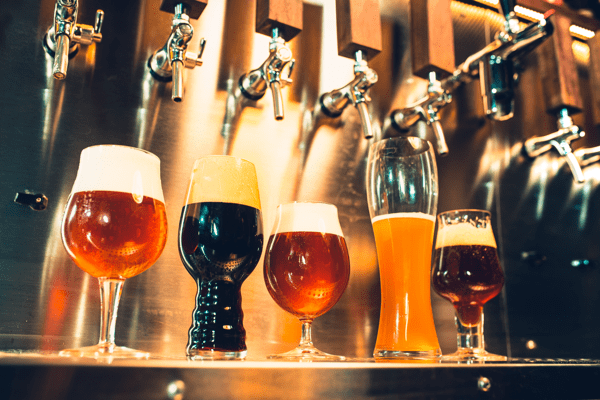Despite the name, you will need to make sure you add liquor liability insurance to your business policy if you serve beer or wine at your business. Although most business liability insurance automatically includes host liquor coverage, this only applies to small functions hosted by an enterprise that is not in the business of selling alcohol. Our experienced agency can help ensure you have the coverage you need.
What Does Liquor Liability Insurance Cover?
If your business serves beer, wine, or any type of alcohol to a person who is visibly intoxicated and subsequently causes injury or damages, liquor liability insurance will cover legal fees, medical costs, and settlements. This insurance covers:
- Third-party property damage: Liquor liability insurance will cover the cost of replacing or repairing property of a third part that was damaged by someone who became intoxicated at your business.
- Third-party bodily injury: If a customer became intoxicated at your business establishment, then injured another person, this coverage can help pay for immediate medical expenses or your legal expenses if the injured person sues your business.
- Legal fees and costs: If the actions of an over-served, intoxicated patron of your business result in a lawsuit filed against you, liquor liability insurance can help cover attorney fees, court costs, and settlements.
- Other claims: For example, you may want to add assault and battery coverage to protect your business against employees drinking on the job or claims that a bouncer injured a customer.
What Does Liquor Liability Insurance Not Cover?
Liquor liability insurance is designed to work with your general liability policy. It will not cover your premises or other exposures covered under general liability insurance. Standard exclusions in a typical liquor liability policy include:
- Coverage when a liquor license is not in effect: If your liquor license is not in effect when the incident occurs, for whatever reason, it will not be covered by liquor liability insurance.
- Expected or intended injury: If bodily injury occurs that was either expected or intended by the insured, it is not covered under a liquor liability policy. The exception is injury that occurs as a result of reasonable force used by the insured to protect persons or property.
- Workers’ compensation, disability, or unemployment compensation: Liquor liability insurance will not cover the insured for any requirement imposed by these or similar laws.
- Employer’s liability: Bodily injury to an employee resulting from the performance of his or her job duties for the business of the insured is excluded under a liquor liability policy, along with bodily injury to the employee’s family members as a consequence.
How Should I Prepare for Purchasing Liquor Liability Insurance?
Before you add liquor liability insurance to your business coverage, you will need to know your anticipated gross liquor sales and gross food sales. You will also need to decide on your policy limits. Our knowledgeable agency will be happy to assist you with this process.
Article originally posted on www.insuranceneighbor.com(opens in new tab)



